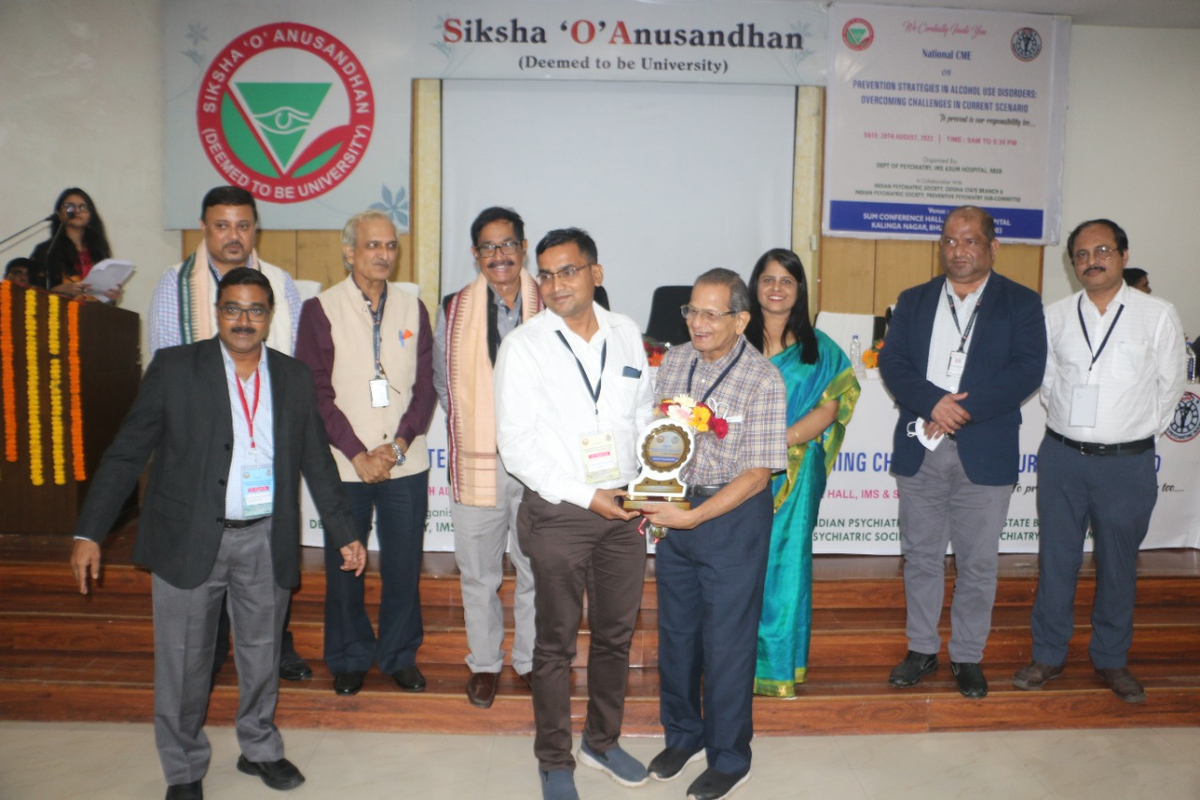Alcohol intake is responsible for around three million deaths every year worldwide accounting for 5.3 percent of all deaths requiring measures to curb drinking habits, said an eminent psychiatrist on Wednesday.
Dr. NN Raju, president of the Indian Psychiatrists’ Association, was delivering a lecture at the Institute of Medical Sciences (IMS) and SUM Hospital here recently. He said, “Liquor claims 2.6 lakh lives in India and is the causal factor linked to more than 200 diseases,”
Advertisement
Dr. Raju disclosed that death of 7.7 per cent of men and 2.6 percent of women worldwide was linked to alcohol while 13.5 percent of the total deaths involving people in the age group of 20 to 39 were attributable to liquor.
Speaking on the theme ‘Prevention Strategies in Alcohol Use Disorders: Overcoming Challenges in the Current Scenario’ at a National Continuing Medical Education (CME) programme jointly organised by the Department of Psychiatry of IMS and SUM Hospital and the Indian Psychiatry Society, he described alcoholism as an illness characterised by the preoccupation with alcohol and loss of control over its consumption.
Dr. Raju said India accounts for 65 per cent of the alcohol production in the world, a substance which was linked to many psychiatric disorders like depression, anxiety, psychosis and acute stress disorder which often led to suicide.
“Alcoholic intoxication is linked to 22 per cent of all suicide deaths while 20 per cent of all non-traffic injury deaths are suicides,” he said, adding that alcohol was responsible for around 38,000 traffic accidents in India reported during the last three years.
Most alcohol related deaths occurred through alcohol poisoning, accidents, homicides, suicides, unintentional injuries and illnesses like liver failure, cancer or heart disease, Dr. Raju said.
Prof. Ashok Kumar Mahapatra, SOA Vice-Chancellor, Prof Sanghamitra Mishra, Dean of IMS and SUM Hospital, Prof Pusparaj Samantasinhar, Medical Superintendent, Dr Arabinda Brahma, Secretary of IPS, Dr Pranab Mohapatra and Dr Ashrumochan Sahoo, President and General Secretary respectively of Odisha state branch of IPS, Prof Surjeet Sahoo, head of the department of psychiatry at IMS and SUM Hospital and Organising chairman of the CME and Prof. SN Mishra, Joint Organising chairman, also spoke on the occasion.
Dr Raju said that those addicted to alcohol continue drinking though they are aware of the physical and psychological problems they would encounter if they didn’t kick the habit. Addiction led to the person getting detached from important social, occupational or recreational activities, he added.
Pointing out that it was for the administration to ensure that alcohol’s negative influence on health and social life was curbed, he said that most government policies were formulated with an eye on more taxes without addressing the problem from the public health standpoint.
Four states, Gujarat, Bihar, Nagaland and Manipur besides Lakshadweep had imposed either total or partial prohibition but the lack of a single national policy, conflicts between the Centre and the States and the absence of a rational and scientific alcohol control policy viewed from the public health angle were hindrances in finding a way out, he said.
The governments, he said, could reduce the number of retail outlets, introduce a government controlled wholesale and retail system, restrict the time of sale or increase the price of alcohol while imposing high taxes to discourage addiction.











